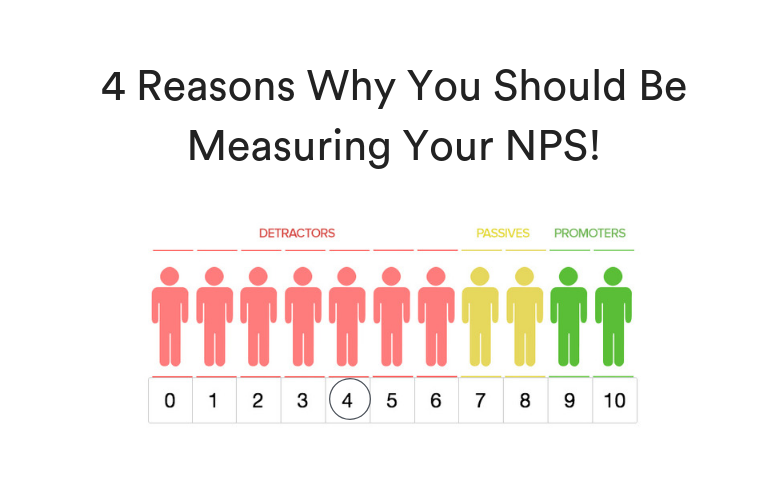
4 Reasons Why You Should Be Measuring your Net Promoter Score

There are many reasons why you should be measuring your company's Net Promoter Score.
The Net Promoter Score is a simple and easy Measure of Customer Loyalty
As far as acquiring customer feedback and measuring customer loyalty, the Net Promoter Score is a simple and effective method. The appeal of the NPS lies in its simplicity. The NPS is based on a single question – “How likely are you to recommend this brand/product/service on a scale of 0-10?”– making it one of the simplest customer feedback metrics. Customers are much more likely to complete surveys that do not take up a huge amount of their time.
It also makes the NPS one of the least complicated surveys to administer AND answer. From a customer’s perspective, there are very few barriers to answering an NPS survey. Implement your survey correctly and customers won’t even have to leave their email or the page to answer it. This is crucial to the success of the NPS as each additional action or question your respondent has to complete increases the likelihood that they will opt out of the survey by 50%.
Furthermore, NPS is relatively easy to calculate. Only a single simple formula is needed, meaning that you don’t need to hire a specialist to administer the NPS survey or to calculate the results. It’s hard to get much simpler than the NPS.
The Net Promoter Score Quantifies word-of-mouth traffic
The Net Promoter Score can help you quantify something that can be tricky to measure – word-of-mouth traffic. Over 83% of consumers report that they trust the recommendations of their family and friends above all other forms of advertising. Therefore, it’s worth your while to invest in finding out how strong your word-of-mouth traffic is. You’ll want to be able to mobilize your ‘promoters’ into creating a word-of-mouth pipeline to drive referral traffic while also working out how you can win ‘detractors’ over.
The NPS is one of the few ways to quantify word-of-mouth traffic. The more ‘promoters’ you have, the more your word-of-mouth traffic grows, while the more ‘detractors’ you have, the slower your word-of-mouth network will grow.
The Net Promoter Score correlates with your company’s financial success and growth
There are so many metrics to measure – how do you know which ones correlate the most strongly with your company’s financial success and therefore are important to keep track of? Net Promoter Scores correlate with a company’s organic growth measures. Although it varies between industry to industry, the NPS explains about 20-60% of variation in organic growth rates amongst competitors. Furthermore, an industry’s NPS leader outgrows its competitors on average, greater than two times. On a more general level, customer experience correlates highly with revenue growth so it is important to make sure you're on top of the three main measurements of customer experience – the Net Promoter Score, Customer Satisfaction (CSAT) and the Customer Effort Score (CES).
The Net Promoter Score Aligns your Team
One of the most underrated factors of the NPS is that it can align a team under a common goal – improving your company’s NPS. Improving NPS as a key metric for customer centric teams will encourage everyone on the team to make sure that customer’s have a positive experience and are likely to become active promoters. It also makes it easier to identify ‘detractors’, helping customer success teams reach out and prevent customer churn.




